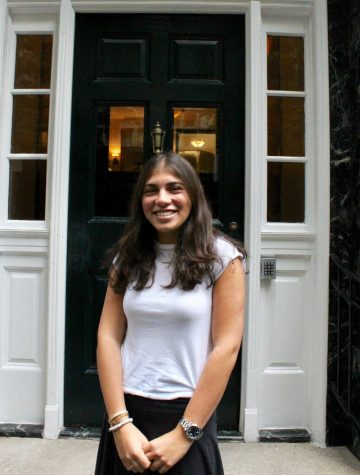Privileges

Every year, when school starts, students in sophomore, junior, and senior classes begin to ask their grade deans and class presidents when they are going to get privileges. Usually, seniors get full privileges from the first day, juniors slowly gain more as the year goes on, and occasionally sophomores are allowed to leave once a week starting second semester. Although there was a delay, seniors have received their privileges for the year, but whether or not they will be awarded to sophomores and juniors remains a mystery. “I really don’t see an issue with giving us privileges,” said Gabby Schwartz ’20. “I think privileges shouldn’t even be called ‘privileges’; it’s more of a right. Our school is located in New York City– it’s not like there aren’t any kosher places around. We should be able to leave when we have lunch or a free period, not only for food, but even as just a chance to get out of the building.”
Ramaz is one of the only schools in the yeshiva league that doesn’t let students out of the building. At schools like SAR, Maayanot/TABC, Frisch, and HAFTR, students are allowed to leave the building anytime they want, not just during lunch periods, to go out. The question remains: why shouldn’t Ramaz kids be allowed to get coffee or pizza or just relax outside during a block of free time?
Sophomore class president Caitlin Levine ’21 feels keeping any students, even younger ones, inside the building Ramaz aims to develop its students into independent, responsible, and mature young adults. “We are encouraged to self-advocate and take responsibility for our actions from the start of upper school,” she said. “To that end, it would be reasonable to grant our sophomore class lunch privileges much earlier than the current system allows.”
Adds her fellow president Aaron Sokol ’21, “Ramaz always says that New York City is an extension of Ramaz, but how often do we get to experience the city? Having the chance to leave the building, even if it’s just to get lunch, is something Ramaz students should be able to experience on the daily.”
The junior Grade Dean, Rabbi Slomnicki, who is also Dean of Student Life, is in charge of distributing privileges. Junior class presidents, Lucy Doft ’20 and Gabriel Potter ’20, said they were doing everything they could to get privileges for their grade. “We talked to Rabbi Slomnicki and are working on it. But as the seniors, who had Rabbi Slomnicki as a grade for both sophomore and junior year, Rabbi Slomnicki isn’t always the biggest fan of privileges, so it might take a while,” explained the presidents. “He just doesn’t think privileges are necessary, and it has nothing to do with trust.”
For the Class of 2019 as juniors, though, students felt like Rabbi Slomnicki’s stringency when it came to privileges had a lot to do with trust. Said an anonymous senior, “He felt that our grade didn’t do anything throughout high school to deserve it, and he considers it a privilege when we [students] think it should be a right.”
Former junior class president Tom Shemia ’19 agrees that Rabbi Slomnicki definitely emphasizes the meaning of the word “privilege,” because “by definition it has to be earned and granted, and he did not feel like our grade earned it at all based on davening, behavior, lateness, dress code neglect et cetera.” However, Shemia added another dimension: “He liked the feeling of kids being in school… That’s why juniors have no privileges on Mondays, because it’s the first day back and he wants us back in school for lunch.”
This issue of privileges has now grown beyond the class presidents. During her campaign speech in spring 2018, Sophia Kremer ’20 mentioned giving privileges to everyone, including freshmen, as something to be further discussed and debated. Now, as GO Associate Vice President of Student Life, she and Avery Sholes ’20 and they said that the matter had been discussed at SFAC meetings, and stated,“We are hoping to resolve this issue and believe that from starting as early as freshman students should begin to have privileges.”

Before she became Layout Editor of The Rampage, Hannah Doft was an active writer for the newspaper since her freshman year at Ramaz. Other than The Rampage,...


